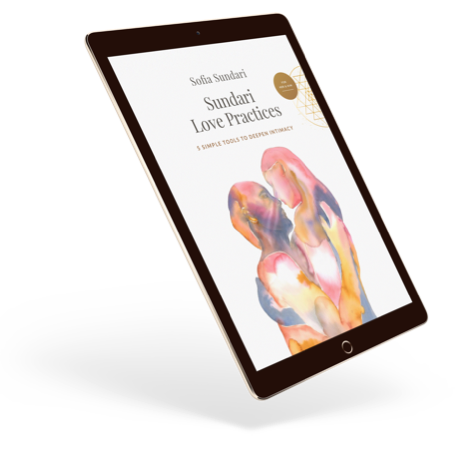
I didn’t grow up having permission to express how I felt or knowing how to express myself at all. All I knew was that when mum got upset she would yell at me. So, very early on I started feeling that emotions were unsafe.
Emotional intelligence is not something we are taught in school, unfortunately. (Unless it’s my school!)
My only emotional processing tool for a while was my diary. If I hadn’t written things down I’d probably have gone crazy with all the unexpressed stuff that I was carrying as a child, teenager and young adult.
Things that are not expressed and not channeled (through spiritual practice or art) become repressed. When things get repressed, they tend to get bottled up, and they need to find a way out. Hence, they often manifest as uncontrollable outbursts of anger or even mental or physical disease.
Lack of education on healthy, non-violent ways of expressing emotions is normally the reason why we don’t express them.
Emotions that are expressed in a healthy way promote connection.
So here comes an invitation to stop holding onto things.
To acquire a “clean as you go” policy.
What does it mean?
- 1. Activate your sense of care. Discover that to care means to share yourself. I used to think “why bother sharing how I feel, it’s not going to change anything, and it’s done already, so I can just drop it”. Which typically would result in not dropping it, but each time I’d see that person I’d feel conflicted, precisely because of that unexpressed trigger that had become a burden and eventually – a wall between us.
- 2. Practice authentic and non-violent expression of emotions. HOW we express them is what makes the whole difference. This sounds much simpler than it is. For most of us it takes a real rewiring. First and foremost: this means avoiding ASSUMPTIONS, JUDGEMENT and BLAME. If the other feels judged, they won’t feel safe to open and you will stay disconnected.
The clear and non-judgmental, non-violent way of expressing emotions is saying how you feel deep inside.
Avoid: “you made me feel”, “you are always doing this”, “you abused/hurt me”, “you are a…”
Also avoid: I feel unseen, unheard, disrespected, unmet, unloved….
Instead use: I feel sad, angry, frustrated….
This is the way to own your feelings and invite another person into your world.
Sometimes it’s wise to take a break, sort out your own inner process first and then come back to them.
Once you’ve expressed your raw feeling the other person may become curious and invite you to elaborate – that’s the ideal way to share more about why you feel that way.
- 3. Own your part – take and express responsibility for how you have been a part of the experience. Hearing this immediately relaxes the other person. And there are always things to own, because you create your reality. Even if you feel disrespected: how do you disrespect yourself? How this is a repeating pattern in your life?
- 4. Prioritise connection over being right and “helping someone see something about themselves”. That‘a big! Can you bear putting your ego aside for the sake of love?
- 5. Forgive yourself and apologise to the other when you mess it all up, because it’s doomed to happen from time to time.
Photo by @deanraphael
Lets get connected. Join the tribe of 100k+ like-hearted souls and follow me on

Get your free ebook
Sundari Love Practices
5 Simple Tools To Deepen Intimacy
